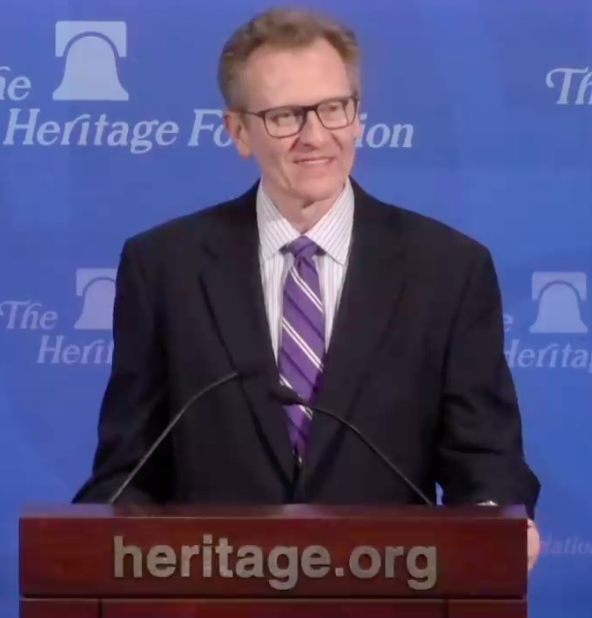Professor: The Free Market Promotes ‘True Social Justice’

Conservatives and progressives have significant disagreements about where the government should intervene in society. Ideally for the conservative, the government should rarely intervene in society unless it is to protect people from getting their rights taken away by others. Progressives differ because they believe that government should do more than just protect rights; namely, it should provide resources to people who are struggling. Progressives believe that a free market system does not go far enough in promoting justice in society. Professor James Otteson of Wake Forest University disputed this claim and argued that a free market system is more just than a socialist system.
Professor Otteson explained the conservative view of government by using the writings of Adam Smith. Smith believed that the main duty of government was to protect justice. He had three laws of justice: “Guard the life and person of our neighbor,” “Guard his property and possessions,” “Guard what are called his personal rights, or what is due to him from the promises of others.”
Classical liberals and the conservatives that followed them embraced Smith’s idea that the main duty of government is to protect justice. Smith thought that the government needed to prevent people from taking away the rights of others, but that it should not engage in positive action to aid those in need. Progressives hold a different view of justice, a view that can be referred to as ‘social justice.’
Otteson explained that “…one seeming commonality among many conceptions of social justice is that they (progressives) want to incorporate positive duties to help others into the conception of justice itself. So they’ll reject this negative ‘defensive-only’ conception of justice that Smith has and say there are also some duties towards other people that we have as a matter of justice, not just as a matter of charity.”
Ethicist Peter Singer gave the example of a drowning child. If a person were on his or her way to work and saw a child drowning, practically everyone would sacrifice getting to work on time and save the child. He applied this example to the idea that the government needs to aid poor people and not simply be bystanders. Smith’s response to the social justice objection is that local individuals can be generous and charitable but third parties typically cannot. It is difficult to know what is best for every person, so people close to a person in need can be significantly more helpful than the government.
A free market by nature promotes altruism because “…the only way you can successfully execute a mutual voluntary transaction is if I offer you something that matters to you…and the only way I’m going to be able to be offer something that matters to you is I have to respect you and your interests, goals, and purposes in life and I have to think about you.”
A free market is just because “If all people—of whatever social class, race, religion, ethnicity, or anything else—if all people have the ability and the right to say ‘no thank you’ to any offer that’s made, then immediately our moral statuses are level, we meet each other as moral peers.”
Otteson concluded by saying that a free market promotes true justice because “…it suggests that the proper way of dealing with others is to meet them as moral peers, respect their opt-out options, and look for ways to engage cooperatively in mutually voluntary and mutually beneficial transactions. And that way, you might get what I would call perhaps true social justice.”




